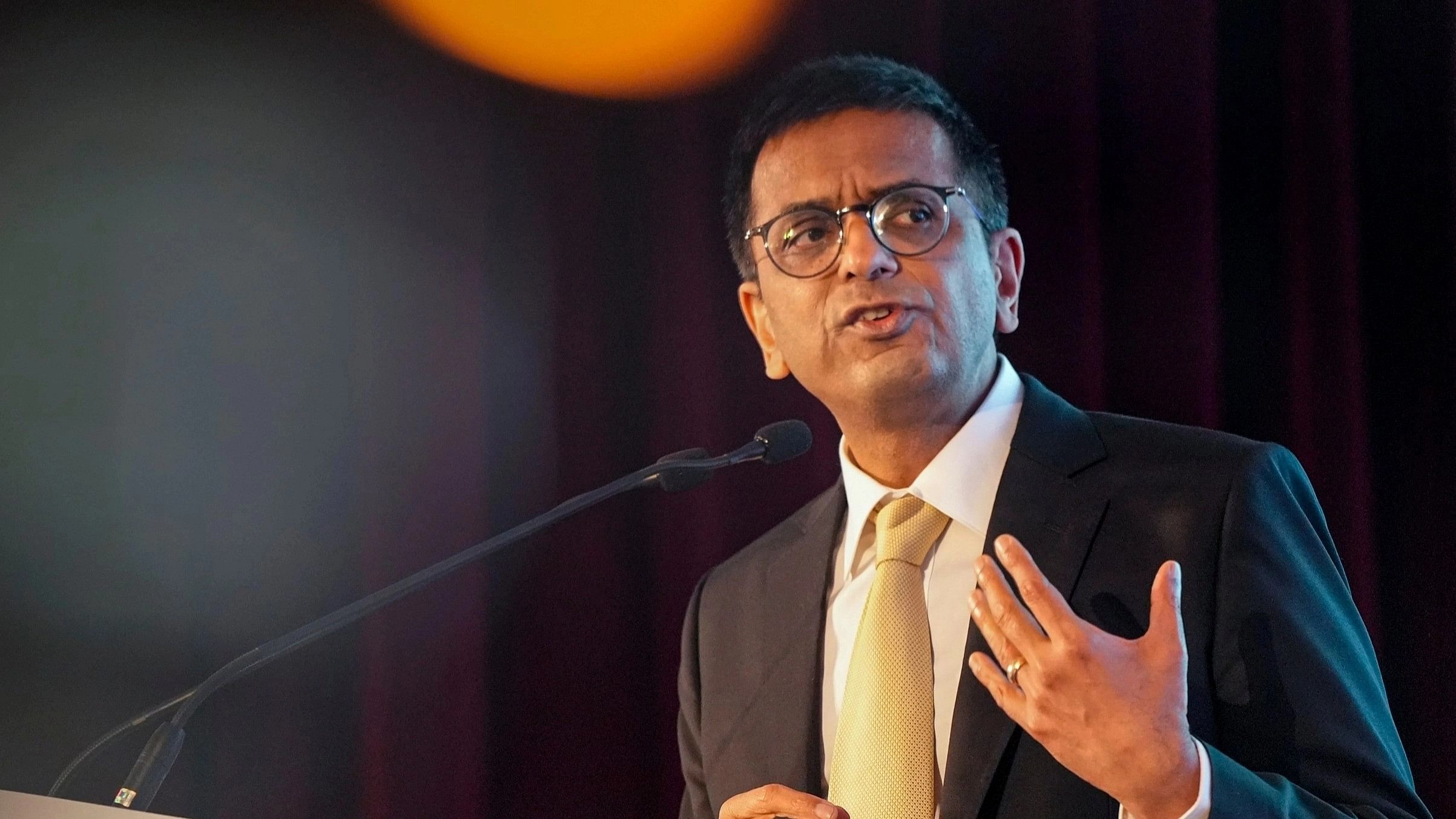
Chief Justice of India (CJI) D Y Chandrachud.
Credit: PTI Photo
Chief Justice of India D Y Chandrachud on Monday said it is imperative to amplify the justice needs of the under-represented populations in our country. He also said the challenge for judges is not to do justice in the facts of the individual case but to institutionalise the processes and look beyond the immediate as well.
He was speaking at the first Regional Conference on Access to Legal Aid organised by National Legal Services Authority (NALSA) in the national capital.
The CJI said the discourse about human rights and access to justice has historically been monopolised by voices from the Global North (industrialised nations) which makes such dialogues unsuitable.
He said given the intricate web of transnational relations in the present age, our concepts of justice have also changed and in transnational relationships, all nations are not treated equally.
“However, some nations share a sense of solidarity and belonging. It is here that constructed categories such as Global South become important points of collaboration, dialogue and deliberation,” he said.
The CJI said several nations in the Global South, including India, have historically been at the receiving end of imperialism or colonial rule and this history resulted in a relationship of unequal power with such nations being forced into the periphery of the economy.
He said by 2030 it is projected that three of the four largest economies will be from the Global South and the GDP in terms of purchasing power of the Global South-dominated BRICS nations surpasses that of the Global North G7 Club. “This conference serves as a starting point for the nations to expand beyond mere economic and trade alliances and make cooperation between our legal systems a key priority," he said.
Justice Chandrachud said the challenge for judges is not to do justice in the facts of the individual case but to institutionalise the processes and look beyond the immediate as well. "Access to justice is not a right that can be secured only by crafting pro-people jurisprudence in our judgements; rather it requires active progress on the administrative side of the court as well," he said.
Vice President Jagdeep Dhankhar, Union Law Minister Arjun Ram Meghwal, G20 Sherpa Amitabh Kant, Supreme Court Judges Justices Sanjay Kishan Kaul and Sanjiv Khanna and Attorney General R Venkataramani also spoke on the occasion.
Justice Khanna said legal aid needs to be understood much beyond the aid to the needy and it has a functional role in strengthening the justice system. “It empowers individuals to participate and engage with public institutions and become active and equal stakeholders,” he said.
Justice Khanna said the Indian Constitution imposes an obligation on the state to provide free legal aid to ensure access to justice to all citizens, and in India, the Legal Services Authority Act, 1987 forms a backbone of how legal aid accessibility and awareness is structured.
Giving an overview of the conference, he said this is the first time the heads of the judiciary, heads of law and justice ministries, heads of legal aid bodies and civil society representatives from 70 countries of the Global South have come together at an international platform dedicated to the cause of legal aid.
